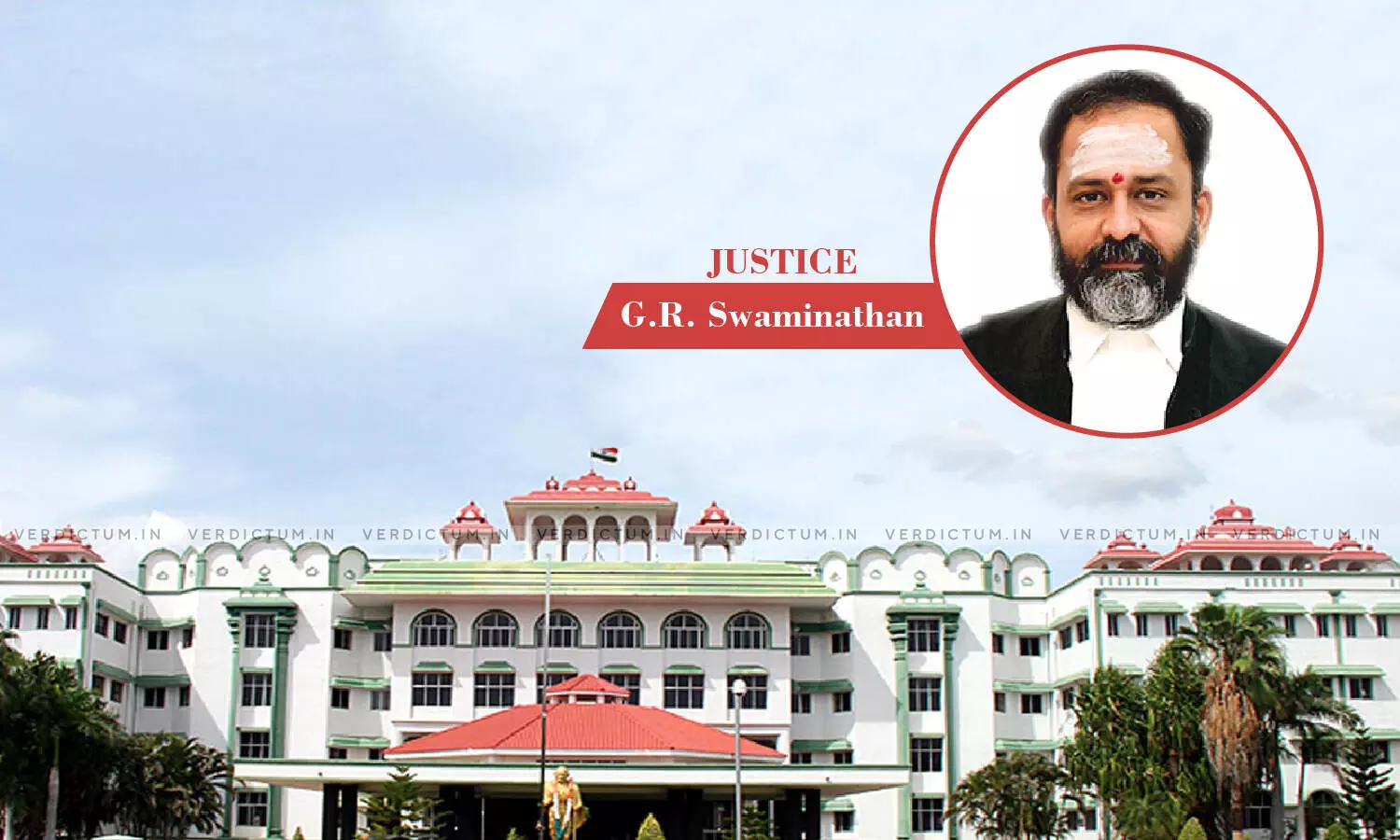
State Should Approach All Religions Alike: Madras HC Moots Inclusion Of Church Properties Within Scope Of Section 22-A Registration Act: Madras HC
 |
|The Madras High Court observed that the time has come to include the church properties within the scope of Section 22-A of the Registration Act, 1908.
Section 22-A of the Registration Act deals with the power to refuse registration of certain documents.
The Court observed that India being a secular country should approach all religions alike while noting that the Registration Act contains provisions to protect the properties endowed under Hindu and Islamic Laws.
The bench of Justice G.R. Swaminathan observed, “When the Registration Act contains a provision to protect the properties endowed under Hindu and Islamic Laws, it is surprising that the church properties are not covered. The logical reason that one can give is that in the case of Hindu religious endowments and Wakf properties, there are specific legislations, in the case of church properties, a similar law appears to be absent. India is a secular country. It means that the State should approach all the religions alike. Probably the time has come to include the church properties also within the scope of Section 22-A of the Act.”
Brief Facts-
In the present case, petitioner Shalin has purchased the petition-mentioned property from one Vijaya. It was presented for registration before the respondent Sub Registrar. He refused registration and issued the impugned refusal check slip. Challenging the same, the present writ petition came to be filed.
The Court noted that the circular was not a statutory direction issued by the IG of Registration. It is a mere communication by the District Registrar (Guideline) intimating all the Sub Registrars, District Registrars and the Deputy Inspector Generals of Registration about the interim order passed by the High Court.
“It is well settled that an interim order cannot have life beyond the termination of the main writ petition.”, the Court added.
The Court further noted that Section 22-A and Section 22-B which are inserted by Tamil Nadu Act 28 of 2012 cannot be liberally or expansively interpreted. It is seen that in Section 22-A, only immovable properties belonging to, or given or endowed for the purpose of, any religious institution to which the Tamil Nadu Hindu Religious and Charitable Endowments Act, 1959 and Wakf properties under the superintendence of the Wakf Board are covered however, Church properties have not been granted similar protection.
Finally, the Court said that Section 22-A does not apply to transactions involving church properties. Looking at it from any angle, there is no justification for the Sub Registrar declining to register the document in question.
Accordingly, the Court set aside the impugned order and allowed the Writ Petition.
Cause Title: Shalin v. District Registrar, Karaikudi, Sivagangai District
Appearance:
Appellant: Adv. A. Amala
Respondent: Special Govt. Pleader D.Farjana Ghoushia